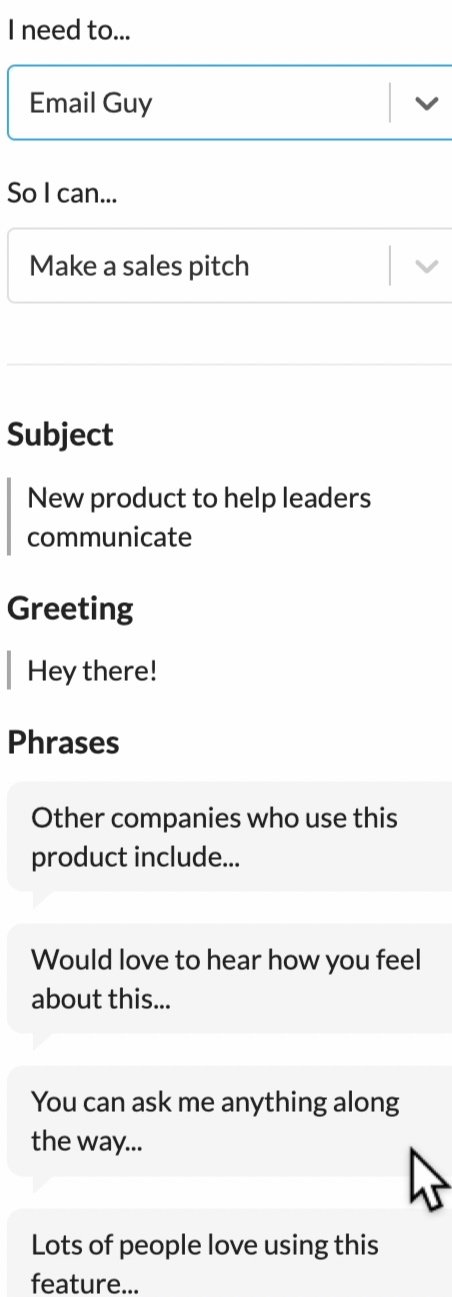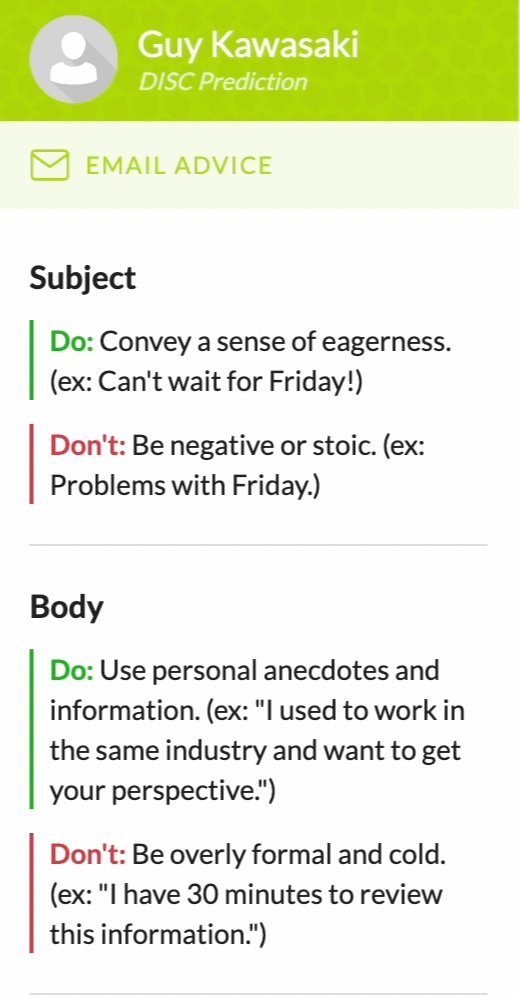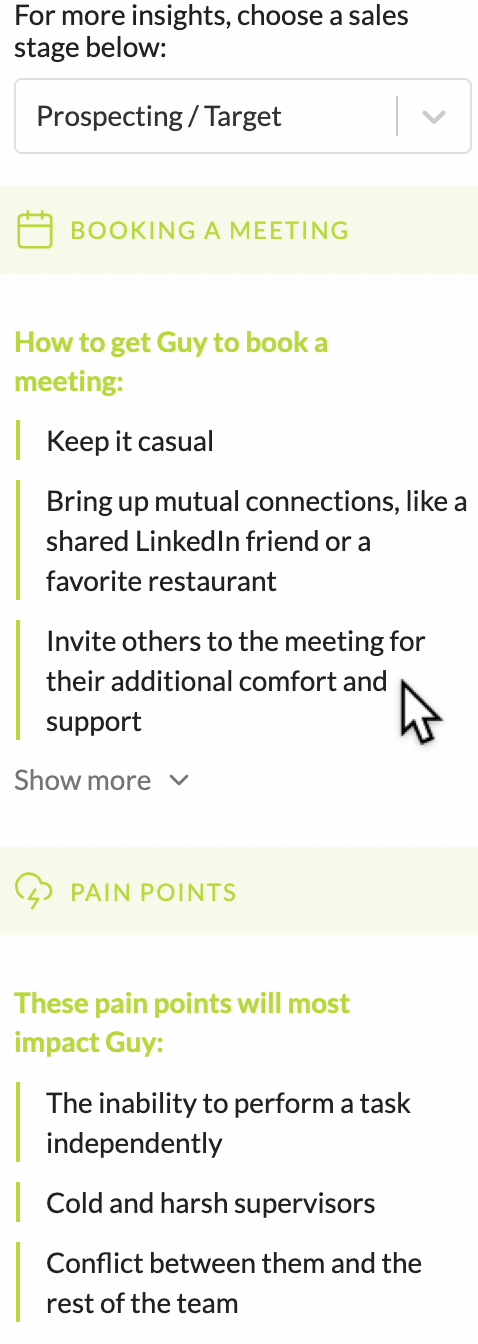Is Personality Testing the Key to Ensuring Team Sustainability?
It's 2024, we have 14 social media profiles, artificial intelligence evolving by the day and still dealing with emails, the world is diversifying and growing so fast that it is paramount for our businesses to be optimizing every decision so they have the room to pivot for whatever comes at us next. Sustainable success in this era extends far beyond conventional metrics like revenue growth and operational efficiency; it begins with the very foundation of our companies – the people. This encompasses not only the individuals we serve and those on our existing teams but also the individuals we bring on board through the hiring process.
One potential remedy that we strongly recommend is the integration of personality tests into your hiring process. Additionally, consider conducting an audit of your current team as a whole to gain a comprehensive understanding of how the diverse energies within your team can align with and contribute to your company's overarching goals.
Many leaders hire without a clear understanding of what to look for in a person and fill roles based simply on the person’s experience and if it matches the job description. Sometimes there isn't a consideration if this person would be more optimal in another position that fits their personality or if adding their specific personality to the team would possibly disrupt or throw off the balance of the current team.
This is where the DISC personality assessment comes into play.
It categorizes individuals into four personality types:
Dominance (D),
Influence (I),
Steadiness (S), and
Conscientiousness (C).
Recognize that each personality type brings its own strengths to the team. ‘D’ personalities may excel in leadership and decision-making roles, ‘I’ personalities can be great at building relationships and enthusiasm, ‘S’ personalities are often dependable and team-focused, and ‘C’ personalities are detail-oriented and analytical.
Scaling a team requires assessing how each potential member influences the tribe. Too many dominant personalities can hinder productivity, and an abundance of passive personalities places excessive pressure on leaders. It's a delicate balance.
Determining the ideal distribution of these personality types within your team is essential for optimal performance.
Having this frame of mind when hiring people in this modern world is CRITICAL for making more deliberate hiring decisions.
Surprisingly, only about 5% of companies require personality tests during the hiring process, even though this practice has proven successful for business leaders like Tony Robbins and Dave Ramsey. Dave Ramsey has talked specifically at one of his conferences that they will specifically not hire a person that is qualified for the position if they have a personality that will disrupt the balance of the team.
At Ramsey Solutions, the team members where their personalities on their name tag because it’s that important. People recognize a person’s strengths and weaknesses quicker, understand how to communicate more efficiently which creates better cohesion, understanding and overall productivity.
Hiring Case Study:
We view personality tests in much the same way a football coach assesses their players on the team. Just as coaches evaluate physical attributes like height, weight, and agility, they also place a high premium on leadership and personality attributes. Take the quarterback, for instance. Traditionally, quarterbacks tend to possess not only physical prowess but also a higher IQ that enables them to store and execute intricate game strategies. Moreover, they often exude natural leadership qualities, fostering trust and confidence within the team. If the coach has 3 potential quarterbacks to add to the team, they won’t just look for physical qualities because personality traits are just as crucial.
Say you are hiring for two positions, Sales Operation Manager and an Outside Sales Representative.
Sales operations manager: oversee the logistical and administrative aspects of the sales process. They may be responsible for optimizing sales processes, managing data analytics, and ensuring the sales team has the necessary tools and resources to succeed.
This type of job most likely needs a high C personality so that they can manage the orderliness required to do the tasks associated with this job.
Sales representatives are responsible for actively contacting potential customers, making sales pitches, and closing deals. Usually having to be diverse switching from company to company.
This type of job most likely needs to a person with a high “I” personality because these people are normally more outgoing, enthusiastic and like to talk to people more than they like tasks.
You are interviewing someone that has a resume that matches experience for both positions.
Even if you don’t require specific tests, by understanding personality traits you can create a sense where you can pick up on actions or the way they carry themself to understand their predominate personality.
They don’t reveal that they like one more than the other but they talk a lot in the interview, they have creative expression in their stories, and aren’t the most orderly in the way they carry themselves. This person most likely has high (I) personality trait making them more suitable for the sales representative job.
IQ + Creativity + Hiring
To optimize hiring decisions in today's rapidly evolving business landscape, it's crucial to recognize the need for individuals with creative problem-solving abilities. However, the question arises: how can you effectively measure and identify these creative problem solvers? Is it sufficient to focus solely on traditional markers like high academic achievement or long tenure at one job? The modern world demands out-of-the-box thinkers, especially as certain industries undergo transformation.
Clinical psychologist and professor of psychology, Jordan Peterson, has addressed the importance of personality in this context. He developed understandmyself.com, a personality test that evaluates individuals using the Big Five Aspects framework. According to Peterson, personality encompasses everything beyond IQ, and while IQ is a valuable predictor of success, the key factor for creative problem solving is openness to experience.
A research study conducted at the institution where Peterson taught revealed a fascinating finding: there is no significant correlation between creativity and academic grades. This suggests that creative individuals often operate beyond the confines of traditional evaluation criteria.
Furthermore, it's worth noting that high academic achievement is often associated with high levels of agreeableness. This discovery carries profound implications, particularly for conscientious leaders who may encounter challenges when seeking individuals with a knack for thinking outside the box. While agreeableness is undoubtedly a positive trait in fostering harmonious relationships and teamwork, it can also pose potential obstacles in the realm of problem-solving and innovation. Highly agreeable individuals may be inclined to conform, avoid rocking the boat, and exhibit lower levels of risk-taking, qualities that may be less conducive to navigating the demands of the rapidly changing new world. In such a dynamic environment, where breaking new ground and embracing unconventional approaches are often essential, striking a balance between agreeableness and the ability to challenge the status quo becomes increasingly crucial for success.
If you find yourself in this situation—valuing conscientiousness but also needing creative thinkers—conventional hiring methods may not lead you to the candidates you require. This dilemma can be further complicated by the hesitation often associated with considering individuals whose thought processes are less predictable. These creative minds often align with the "I" personality type, as defined by the DISC Personality assessment, making them a unique and valuable addition to your team.
Crystal Knows- LinkedIn Browser Tool
If you are new to understanding the strengths and weaknesses of personality, this tool is made for you. "Crystal Knows" is a company that uses a combination of personality assessment models and data analysis to generate insights into how individuals may prefer to communicate and work with others.
They have a personality tool that you can add to your browser that will analyze a LinkedIn profile and tell you someones personality, how to communicate with them and much more!
It is am amazing invention that can make your hiring and head hunting that much more efficient.
This is an example of Guy Kawasaki’s profile using the LinkedIn plug with one of our personalities!
It tells you everything from how to communicate with him, how we would send him an email, pitch him a sales idea. It truly is incredible. Download the extension here —> Crystal Knows Chrome Extension
There are all types of strategies within Crystal Knows that can help you create an environment for more cohesive meetings, communication and strategies for problem solving.
Selective hiring strategy ensures a well-rounded workforce.
By implementing personality tests, either before scaling your team or with your current members, you can achieve several crucial benefits:
Gauging Bandwidth: Assess your team's overall personality composition and individual traits. Redirect tasks based on whether someone is people-oriented or task-oriented, optimizing your strategies accordingly.
Team Composition: Determine the ideal mix of personalities for each team. For instance, a creative department may benefit from a blend of innovative (I) and steady (S) personalities, while a project management team may require more conscientious (C) individuals.
Conflict Resolution: Identify potential sources of conflict within the team based on personality clashes. This insight allows you to proactively address and mediate conflicts, fostering a more harmonious work environment.
Communication Styles: Understand how team members prefer to communicate. Some may thrive on direct and assertive communication (D), while others may prefer a more diplomatic and collaborative approach (I or S). Tailor communication strategies accordingly.
Leadership Development: Identify employees with leadership potential based on their personality traits. This can help in grooming future leaders and aligning them with roles that suit their strengths.
Team Building: Organize team-building activities that cater to the diverse personalities within the group. This can enhance team cohesion and cooperation.
Conflict Resolution Training: Provide training in conflict resolution that aligns with the different personalities on your team. For example, teach assertiveness techniques to D personalities and active listening skills to S personalities.
Personalized Coaching: Offer personalized coaching and development plans for team members based on their personality profiles. This can help individuals improve in areas where their natural traits might be less pronounced.
Performance Reviews: Use personality assessments as part of performance reviews to provide more nuanced feedback. This can lead to more effective performance improvement plans.
Client Interaction: Understand how team members' personalities affect client interactions. Assign individuals with personalities that align well with specific clients to enhance rapport and satisfaction.
Innovation: Encourage innovation by creating cross-functional teams with diverse personality types. This can lead to fresh perspectives and creative problem-solving.
Adaptation to Change: Recognize how different personalities respond to change. Some may embrace it (I), while others may need more time to adjust (S). Tailor change management strategies accordingly.
Work-Life Balance: Be mindful of the work preferences of each personality type. Some may thrive in a flexible work environment, while others may prefer a structured routine.
Incorporating personality assessments into your team-building and strategy development processes is a powerful way to create a more sustainable and harmonious work environment, fostering growth and success.
By harnessing the insights from personality assessments like DISC and CrystalKnows.com, you can cultivate a dynamic, well-balanced team that's primed for sustainable success. This approach isn't just about making hires; it's about strategically positioning each team member for maximum impact.
Remember, sustainability isn't just about the products you offer or the processes you follow. It's about the people within your organization aligning with what is expected of them so they are in matched with their highest potential.
So, don't underestimate the power of understanding personalities and leveraging that knowledge to create a harmonious, productive, and sustainable workplace.





